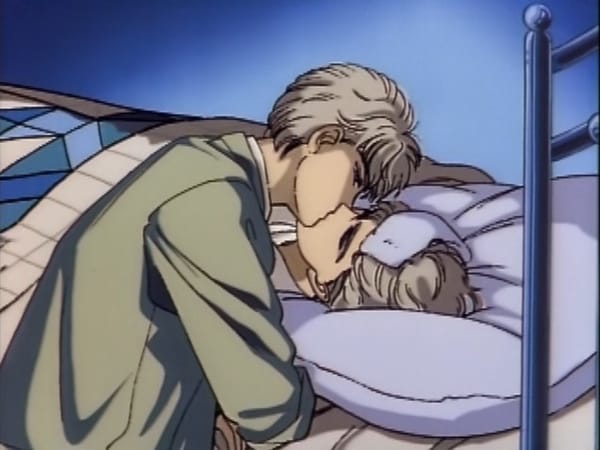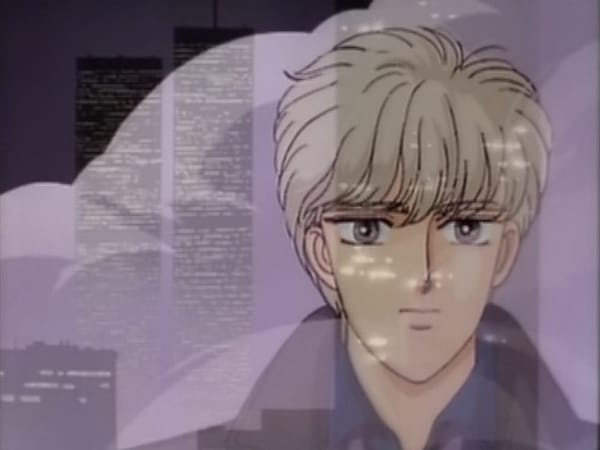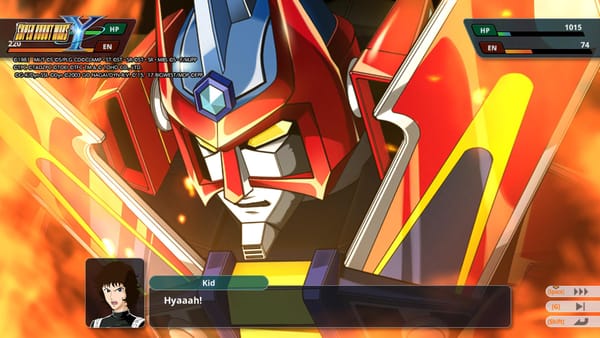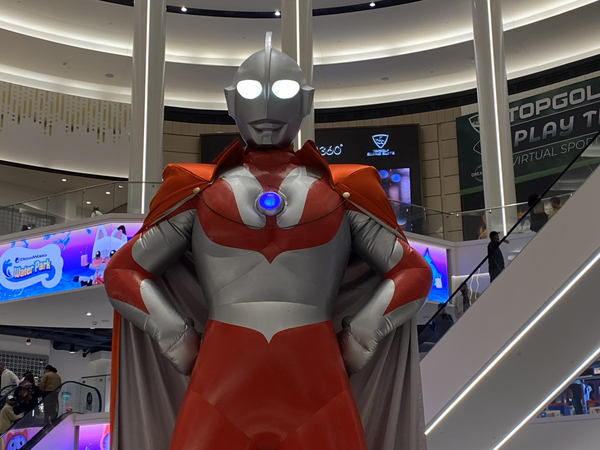The Glory is a superbly made schadenfreude soap opera
It knows exactly what it is and it knows you like it
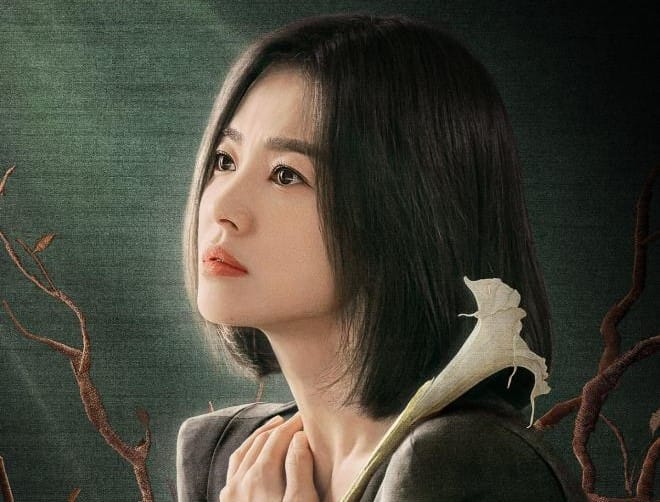
Subscribers: apologies for not getting anything done this month, life circumstances have been beyond my control. I offer you something unexpected instead.
I am not going to let any particular details of The Glory slip— those are your twists to savor— but it’s impossible to talk about this series without speaking about “what happens” in more general terms.
Content warning: this series is specifically about some very intense and violent high school bullying, including sexual assault. These scenes are graphic and pervasive.
Last weekend at mahjong1, a lot of my fellow players were unanimously raving about The Glory, a Korean drama whose finale just dropped on Netflix. I got a little curious.
And for various reasons I spent most of my days this week house-sitting, without the spare time or attention to do anything productive; TV time, in other words.
So I said, what the hell, The Glory it is— and then it popped up as soon as I logged into Netflix. Sixteen hour-long episodes, huh? That’s a lot, but…
It’s Thursday as I write this and I’m done. I was hooked from the first episode; it’s a dark revenge story about a bullied high school teen who dedicates her adult life to a massive, sprawling, and thorough revenge plan against the perpetrators, an clique of untouchable social elites.
I generally stay away from the “revenge” genre in anime/manga— my typical entertainment— because in that world, these focused revenge stories are more often than not the fantasies of mean-spirited, creepy nerds extracting some kind of cruel sexually-rooted vengeance upon cheerleaders and jocks. No thanks; these always give the impression that in the real world, these guys were ostracized for good reason.
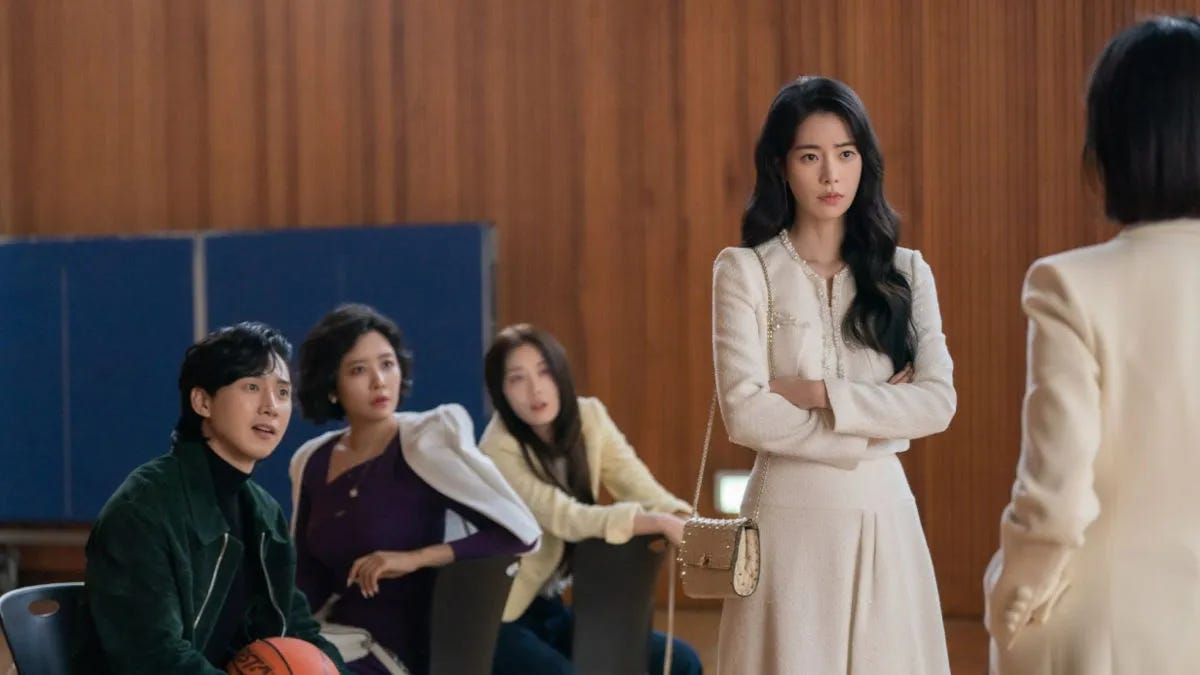
The Glory, on the other hand, is a big-budget soap opera. A telenovela.2 A melodramatic epic. It might take place in the real world, but its nature is also pure fantasy. And the fantasy being offered is this: “Would you like to see the worst people you’ve ever seen slowly crushed by their own sins?” Cynically speaking, the core function of The Glory is to manufacture guilt-free schadenfreude in your head.
This sounds dark and sadistic— and it is— but the show makes certain that you will want it by presenting the absolute nastiest fuckers it can think of, drawing from real-life school bullying incidents. The clique of rich sociopaths that tormented our heroine Dong-eun (Song Hye-Kyo) are kind of an evil Saved By The Bell crew: a queen bee and a hot-head playboy propped up by dirtbag hangers-on.3 Adults are no help-- her teachers and even her mother sell her out-- and the bullies’ social class and connections ensure that they will do as they please and go on to live charmed lives without consequence.
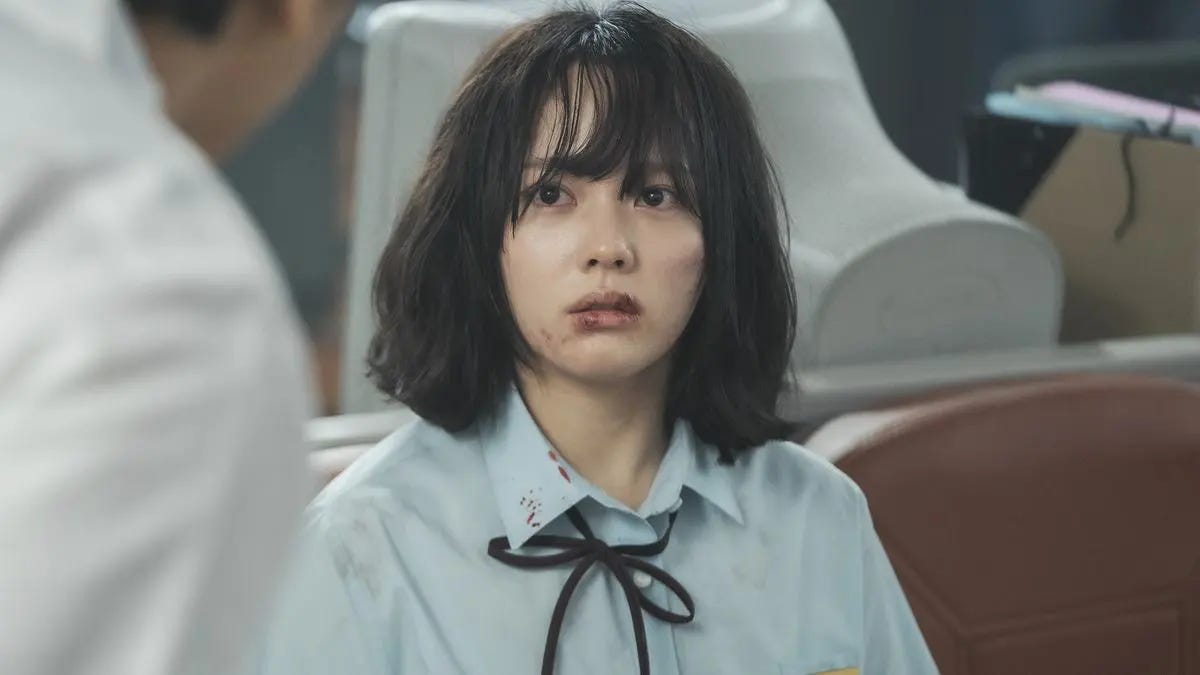
The show also makes the viewer watch these scumbags doing unimaginably awful things from the first moments. I’m not exactly squeamish and I had to fast-forward some of the bullying; its sheer pointless cruelty is much more affecting than the violence so graphically inflicted. The bullying scenes ensure that no matter how far these people fall, we can only react by saying “good for them”.
The bully roles are all exceptionally well acted, especially their ringleader, the unapologetically monstrous Park Yeon-jin (Lim Ji-yeon). And there’s no spark of humanity to any of them. That’s deliberate. As their worlds crash down around them, you’d think that maybe you’d start to feel some sympathy for the villains despite their unforgivable sins, but these characters help you enjoy it by always doing the worst thing. They inevitably, unanimously react to their slow-motion comeuppances with entitled rich-kid rage. They sell each other out, they throw tantrums… you kinda love to see it.
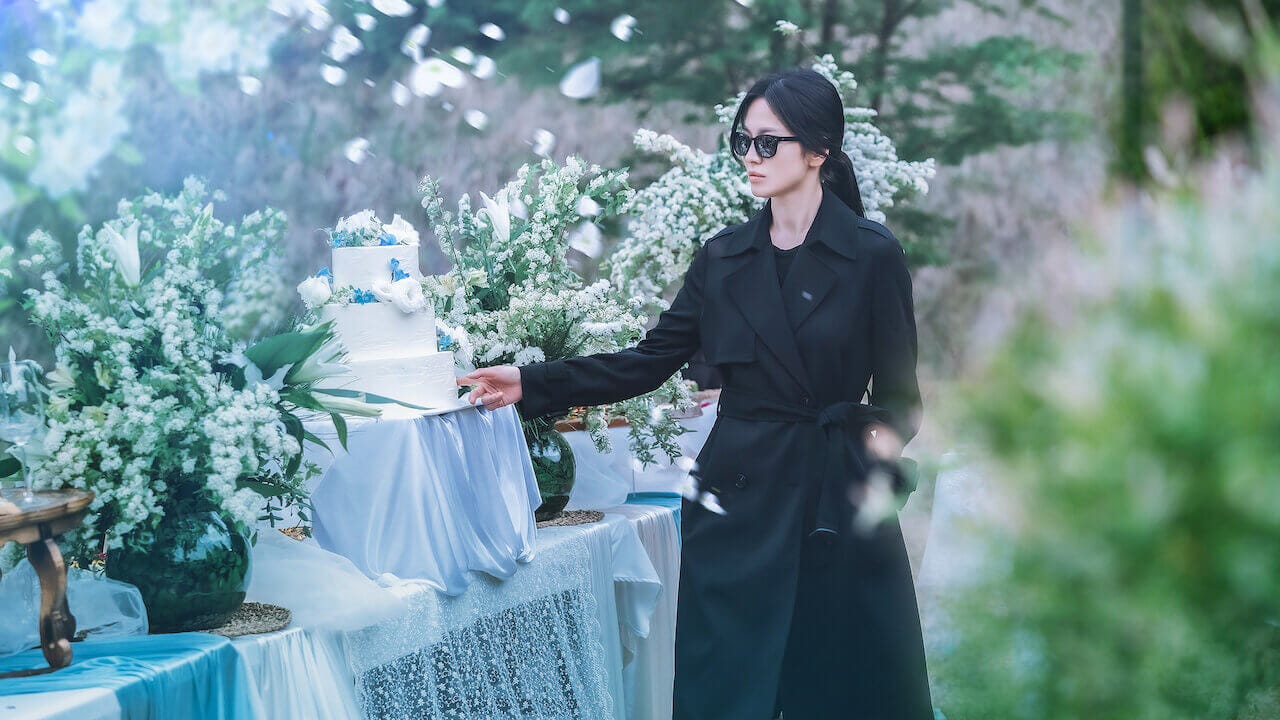
There’s a strong implication in the early episodes of The Glory that this is a morally grey narrative, that Dong-eun’s pursuit of revenge might take her to darker places than Yeon-jin’s crew ever went to.4 But it’s a bluff; that’s not the kind of story this is. Though the abuse has made her self-loathing, Dong-eun is an ever-righteous stalker, the Batman of her field. As she peels back the layers of her victims we can only see more and more rot, more evil beneath.
A huge chunk of this show, after all, is just watching the villains receive some bad news, knock over some expensive scenery and yell “Fuck! This can’t happen to me! Fuck!”.
One blog post I read about The Glory claimed that fans were confused when one of the villains beat up a pedophile; wait, why did a bad guy do a good thing? There’s no room for shades of grey in this universe. Nobody watching even wants that. That’s not what this show is for. We’re in the the soap zone here.
Is it exactly fair that these characters are so deeply rotten all the way through, specifically so that we, the viewers, can enjoy watching their lives go to shit guilt-free? Probably not. Do folks like these exist? Would we not all take some joy in seeing the unrepentant villains of our own world fall? Does the revenge fantasy of The Glory not come from a very real and resonant yearning? Now that I have a tough time contesting.
Speaking of universal longings, there is also a romantic angle as Dong-eun falls in with Joo Yeo-jeong (Lee Do-hyun), a total good-guy dreamboat doctor who falls in love at first sight and inevitably gets wrapped up in her plans.5 I don’t know K-dramas' genre obligations, but this aspect is visibly clumsy, rubber-banding back and forth between genuinely warm moments of chemistry to other scenes that feel deeply unnatural and mandated by genre.6
Speaking of mandates, The Glory lands in a common and awkward position between wanting to deliver the audience a satisfying conclusion but, being (I presume) Netflix-sponsored, wanting to get that sweet Netflix cash for a renewal. Without spoiling any plot details, this leads to a “Netflix ending” where after wrapping up most of the story, The Glory dangles one last plot thread— the least interesting one it’s got— in order to leave itself open for another season. I was pretty satisfied with Dong-eun’s revenge as it was delivered, and I can personally say that if they decided to continue this story, I wouldn’t come back.
The Glory was superbly directed and acted, and quite addictive to watch— I had to know what would happen next— but I dunno if I’d actually recommend it to you to watch. This is the kind of show you have to already be in the mood for.
Did you know competitive games become a lot more fun with a community? Finding a group has re-energized my interest in the game and made me a much stronger player. ↩
My experience with this genre isn’t the American soap but the Latin American one, from years of Spanish TV as a kid. Bonkers plots, big cartoony villains, cars driving over cliffs. The Glory is positively sober compared to a telenovela. Telenovelas are more like… Code Geass. ↩
The “drug addict” in the group is kind of a laugh, representing a similar Reefer Madness cultural point of view on weed to the Japanese fiction I’m already familiar with. It’s not heroin, guys! ↩
Specifically, the role of a child in the story. ↩
I noticed that marketing and the viewer base considered it a contest between the doctor and another character, a chill good-guy CEO, but the actual show gives the latter guy zero chance ↩
There is this part at the very end where they start playing this schmaltzy music when a scene isn’t working at all and there is no doubt in my mind that it was Obligated ↩
